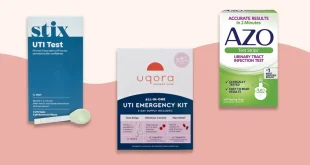Preventive healthcare
In the healthcare sector, preventative healthcare is essential. It has recently grown in significance in the healthcare industry. By using a variety of methods to educate populations and prevent disease, this type of healthcare strives to improve overall well-being. Through preventative healthcare, which promotes healthy living and provides early illness treatment, populations are educated. Nursing’s involvement in disease prevention has grown due to the implementation of healthcare reform and an increase in the number of patients with chronic diseases.
Importance of preventive healthcare
The adoption of preventative healthcare practices aims to keep the populace as healthy and disease-free as possible. According to statistics, 7 out of 10 fatalities recorded in the US each year are caused by chronic illnesses that are mostly preventable. In addition to helping to reduce sickness rates, preventative health measures lessen the demand for critical services and the cost of healthcare. It aids individuals in continuing to contribute to society and be engaged members.
Nurse’s role in promoting preventive healthcare
Nurses are essential in avoiding disease outbreaks and promoting healthier lifestyles for society. They provide hospital visitors, their guardians, and the broader public assistance in understanding how to avoid diseases and lead healthier lifestyles through outreach programs and patient counseling. However, to do so, they must be adequately qualified with the necessary skills and education. The University of Indianapolis has a specially designed Post Master’s DNP Online degree that prepares nurses to achieve the peak of their careers as advanced practice nurses and creative leaders. In general, there are many methods that nursing staff may enhance efforts in preventative healthcare, but some of the more effective ones are as follows:
- Educating people: One of the most significant ways that nurses promote activities that encourage health prevention is via education. Nurses are capable of addressing a wide range of health-related topics with patients, from nutrition and exercise to different sickness-preventive techniques. Numerous venues and delivery methods are available for education. Nursing staff members may choose to offer educational seminars on certain topics or give patients access to written educational resources, such as pamphlets and the internet, as well as written educational materials.
- Facilitating patient access to care: The therapies that are covered by a patient’s health insurance are unknown to them. As a result, many individuals neglect to receive crucial preventative procedures including blood testing, cancer screenings, and immunizations. Nurses can help patients with the details of their healthcare plans and connect them with the services to which they are legally and medically entitled.
- Recognizing patients at risk: Keeping a close eye on patient demographics with an elevated risk for specific diseases is the most important component of any preventive healthcare approach. Educating people on improving their health and conducting necessary screenings are also crucial aspects of preventative health. For instance, nurses should advise patients on healthy lifestyles that may improve heart health. They should urge patients with a history of heart disease to obtain regular blood pressure and cholesterol tests. The population of older individuals is another category that frequently needs additional preventative health advice since they have a statistically increased chance of developing several chronic diseases, such as diabetes, stroke, and osteoporosis.
 The Care Up
The Care Up




